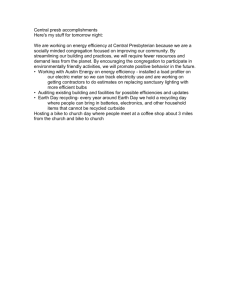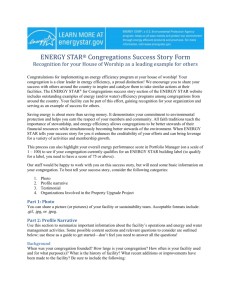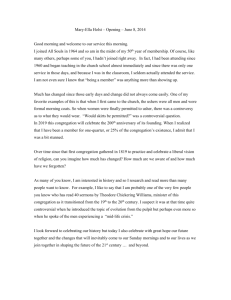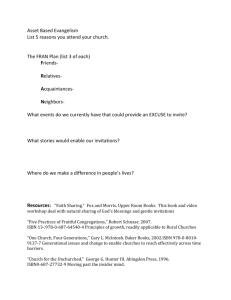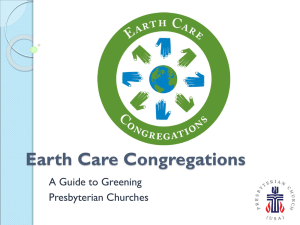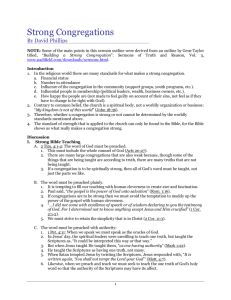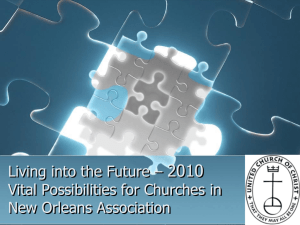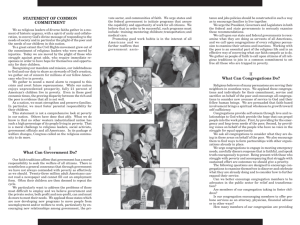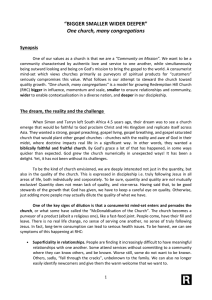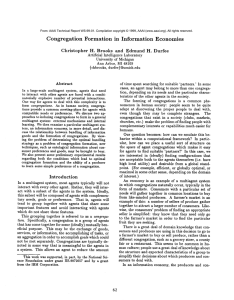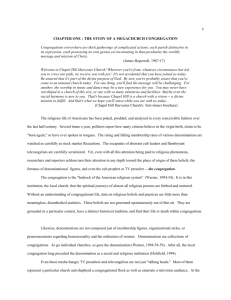Contributors-to-Conflict
advertisement
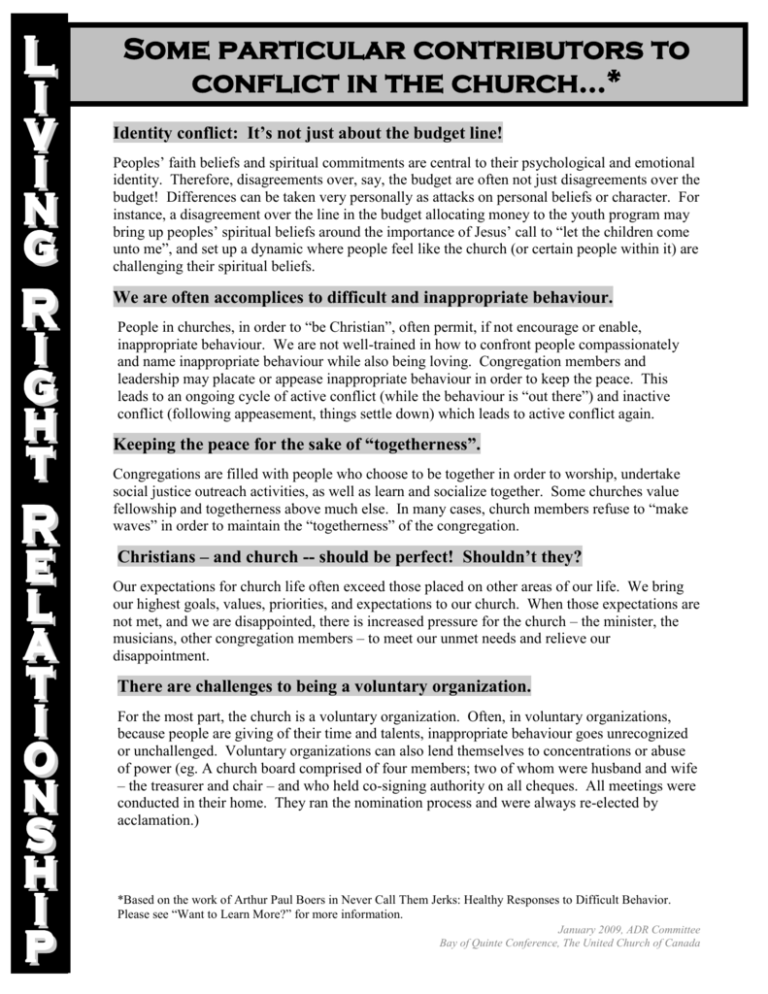
Some particular contributors to conflict in the church...* Identity conflict: It’s not just about the budget line! Peoples’ faith beliefs and spiritual commitments are central to their psychological and emotional identity. Therefore, disagreements over, say, the budget are often not just disagreements over the budget! Differences can be taken very personally as attacks on personal beliefs or character. For instance, a disagreement over the line in the budget allocating money to the youth program may bring up peoples’ spiritual beliefs around the importance of Jesus’ call to “let the children come unto me”, and set up a dynamic where people feel like the church (or certain people within it) are challenging their spiritual beliefs. We are often accomplices to difficult and inappropriate behaviour. People in churches, in order to “be Christian”, often permit, if not encourage or enable, inappropriate behaviour. We are not well-trained in how to confront people compassionately and name inappropriate behaviour while also being loving. Congregation members and leadership may placate or appease inappropriate behaviour in order to keep the peace. This leads to an ongoing cycle of active conflict (while the behaviour is “out there”) and inactive conflict (following appeasement, things settle down) which leads to active conflict again. Keeping the peace for the sake of “togetherness”. Congregations are filled with people who choose to be together in order to worship, undertake social justice outreach activities, as well as learn and socialize together. Some churches value fellowship and togetherness above much else. In many cases, church members refuse to “make waves” in order to maintain the “togetherness” of the congregation. Christians – and church -- should be perfect! Shouldn’t they? Our expectations for church life often exceed those placed on other areas of our life. We bring our highest goals, values, priorities, and expectations to our church. When those expectations are not met, and we are disappointed, there is increased pressure for the church – the minister, the musicians, other congregation members – to meet our unmet needs and relieve our disappointment. There are challenges to being a voluntary organization. For the most part, the church is a voluntary organization. Often, in voluntary organizations, because people are giving of their time and talents, inappropriate behaviour goes unrecognized or unchallenged. Voluntary organizations can also lend themselves to concentrations or abuse of power (eg. A church board comprised of four members; two of whom were husband and wife – the treasurer and chair – and who held co-signing authority on all cheques. All meetings were conducted in their home. They ran the nomination process and were always re-elected by acclamation.) *Based on the work of Arthur Paul Boers in Never Call Them Jerks: Healthy Responses to Difficult Behavior. Please see “Want to Learn More?” for more information. January 2009, ADR Committee Bay of Quinte Conference, The United Church of Canada Some Particular Contributors to Conflict in the Church... A concentration of power for some leads to the exclusion of others. Where there are concentrations of power in a congregation, others are necessarily excluded from having influence or power in church processes. This can lead to a lack of ‘buy-in’ in congregational decisions and, therefore, conflict. There are challenges to being a small organization. For smaller congregations, inappropriate behaviour may go unchallenged, and conflicts unresolved, for fear of having members withdraw financial or volunteer support. As well, conflicts in smaller organizations or churches “are like puddles: each wave of conflict, upset, or controversy washes over and affects everyone, muddying issues, and leaving all feeling sullied.” This can also happen, of course, in larger congregations. However, the effects of the conflict can be dispersed over a wider population, easing the impact. That’s not to say, though, that large congregations may not spend copious amounts of time and energy dealing with conflict. The effects in a larger congregation are a bit different, however. The eternal stakes… In congregations which hold to eternal salvation beliefs, conflicts may be raised to the level of taking on eternal proportions. If there is a conflict around theology, members may be convinced that eternal salvation is at stake: their own, their children’s, or the church’s. This can escalate a conflict to very unhealthy proportions. Churches often challenge the status quo. The Gospel calls on Christians to challenge the status quo in society and work to bring personal and social transformation. Doing this generates emotional reactions and differences of opinion and, thus, conflict – either within the congregation or between the church and the surrounding community. Used by permission of Mary Chambers January 2009, ADR Committee Bay of Quinte Conference, The United Church of Canada

